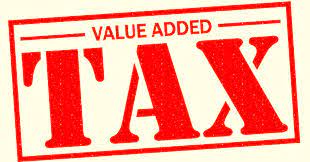The Federal Government has announced plans to strictly enforce tax payments on rental income, mandating landlords to remit taxes from rents received.
Chairman of the Presidential Committee on Fiscal Policy and Tax Reforms, Taiwo Oyedele, clarified the development in a video shared on X, noting that contrary to widespread speculation, the new tax laws did not introduce fresh taxes on property owners.
“There has always been a provision in the law for people who own properties to pay taxes on their rents. These new laws have not imposed new taxes. What we are trying to do is to make sure that those who have properties and earn rents pay the taxes they are supposed to pay under the law as part of their personal income tax,” Oyedele explained.
What the Tax Reform Means for Landlords and Tenants
According to Oyedele, landlords who earn income from residential or commercial properties are expected to declare their rental earnings as part of their personal income tax obligations. While the law is not new, enforcement has historically been weak, leading to revenue leakages.
The reforms will strengthen compliance mechanisms to ensure that landlords—particularly high net worth individuals who generate significant revenue from rent—fulfil their tax obligations.
However, Oyedele stressed that the government is also mindful of protecting vulnerable groups. The restructured personal income tax table now:
- Eliminates taxes for low-income earners,
- Reduces tax rates for middle-income earners, and
- Marginally increases taxes for high net worth individuals.
This balance, he said, ensures fairness while broadening the country’s tax base.
Implications for Small Businesses and SMEs
The reforms also offer significant relief for Nigeria’s micro, small, and medium enterprises (MSMEs). Oyedele disclosed that small businesses that previously charged Value Added Tax (VAT) are now exempted, as the VAT threshold has been increased.
For SMEs, this means:
- Lower administrative burdens from VAT compliance,
- More competitive pricing since VAT costs are removed for qualifying businesses,
- A friendlier business environment that supports survival and growth.
This exemption is particularly critical for SMEs operating in Nigeria’s informal and semi-formal sectors, where thin profit margins often make compliance with multiple taxes unsustainable.
Experts say enforcing taxes on rental income could significantly boost Nigeria’s non-oil revenue base while promoting equity. Property ownership is a major source of wealth in urban centres, and ensuring landlords contribute fairly could reduce the tax burden on wage earners and small businesses.
The development is also expected to improve fiscal transparency, reduce revenue leakages, and strengthen government capacity to fund infrastructure, healthcare, and education—areas critical to national development and business growth.










